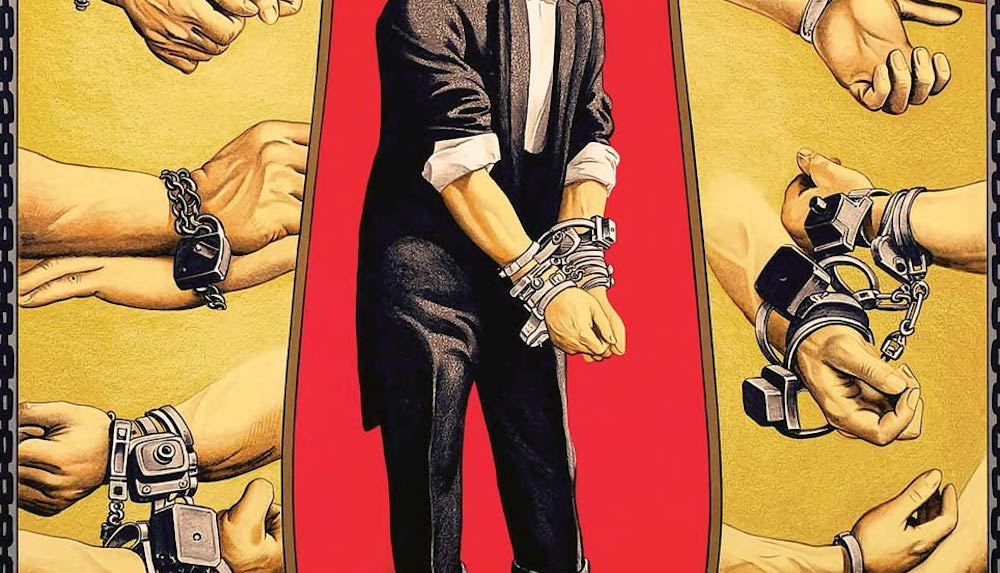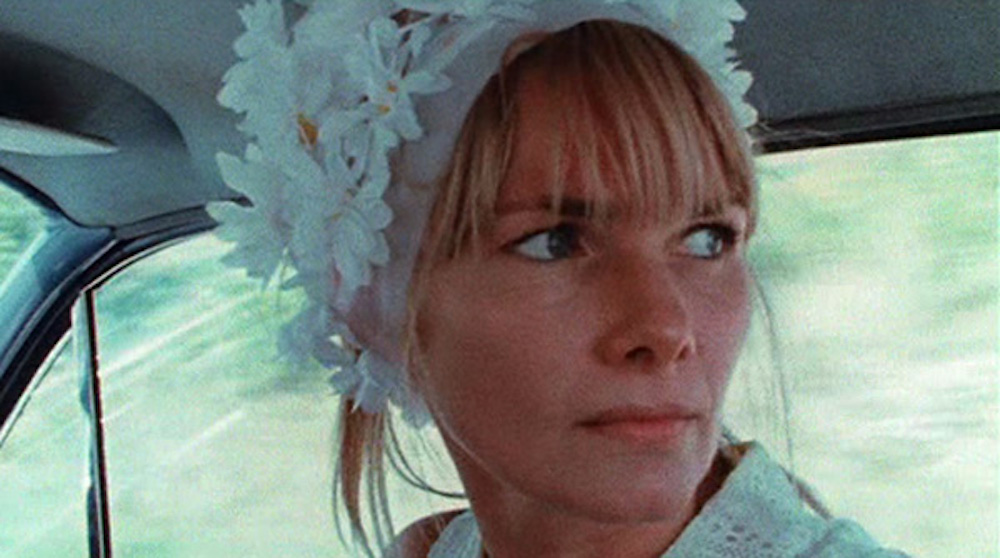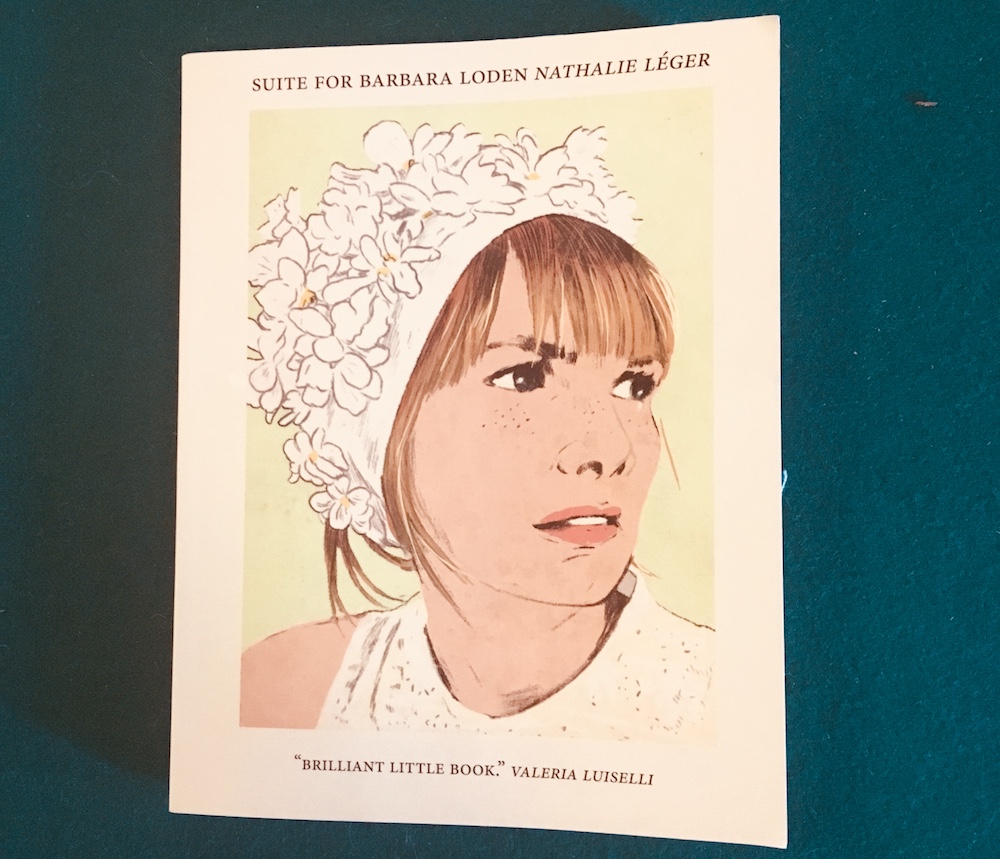The comedy of the New York girl abroad, exemplified in Elaine Dundy’s The Dud Avocado, is high among my favorite genres, followed closely by the tragedy of the New York girl abroad—Daisy Miller is one among many Jamesian examples. Eve Babitz’s Black Swans, originally published in 1993, is both the comedy and the tragedy of the Los Angeles girl on her home coast, and it elevates one of my less-favored genres, the personal essay. These autobiographical “stories” are peopled with sad, handsome men (thus the comedy). The tragedy is the denouement of the preceding decades, which is more readily on display in her interactions with women. Babitz lunches in the L.A. heat, dressed comfortably and mindful of her newly middle-aged metabolism, watching her companion, an effortlessly svelte woman her age, fully made-up and dressed in a fine white pantsuit, devour a hamburger, a bourbon, then a custard, a rare holdout of refined excess. The blinding twilight of a bygone era in Los Angeles is Babitz’s lived experience, distilled here into stories with sweet bite, like sour fruit only just past the point of ripe. —Lauren Kane
Porochista Khakpour’s memoir Sick doesn’t need much more hype, but I have focused on almost nothing else the last two weeks, deliberately stretching it into as many days of reading as possible. That a book chronicling year after year of physical agony, misdiagnosis, and serial dating never becomes narcissistic or self-involved is a miracle; instead, reading Khakpour’s memoir is more like a chance meeting with someone you’ve always dreamed of commiserating with. It could easily have been a polemic against the health care industry; you’ll quickly lose count of how many providers fail Khakpour. It took her years to get a Lyme disease diagnosis, which, detected in the late stage, signifies a lifetime of health problems and relapses. Polemic typically necessitates ego, but Khakpour’s is absent in Sick. My favorite part of the book is its structure, each chapter set in a new city at a new gig. She is writer adept at snagging grants and fellowships, and her story as a sick person spreads from her hometown of Tehran, to L.A., to Sarah Lawrence College, to Johns Hopkins, to New Mexico, Pennsylvania, Germany, and always back to New York. The constant change in geography, in lovers, and in health are immensely pleasurable to read on every page, despite the author’s uncertain future through it all. The very worst moments—hiding in the bathroom with scissors to her arm in Leipzig while her boyfriend has a psychotic episode—are gravid with her joy at being able to write it. In the end, it’s this joy of writing, however grim the content, that is really the subject of Sick. I love this book. —Ben Shields
One gets the sense, reading his collected writings on illusions and trickery and crime, that the great Harry Houdini saw the world as a magic trick. Published by Melville House, The Right Way to Do Wrong, collects Houdini’s essays on the history of magic—he is an obsessive anecdote collector—and the secrets behind his most famous tricks. Published in 1906 as a primer on thieves’ tactics, the book’s primary intention, Houdini asserts unconvincingly, is “to safeguard the public against the practices of the criminal classes by exposing their various tricks.” Despite the disclaimer, Houdini’s pleasure in the adroitness and guile of the thieves is sometimes irrepressible, and it is always the clever re-orientation of objects that delights him. A female jewel thief, for example, swipes merchandise from jewelers, hides the loot in pieces of chewing gum she had stuck under the counter, then returns and grabs the chewing gum after the police have left. Detritus has been made a precious pouch, crime a piece of vaudeville cleverness. Houdini devotes admiring essays to sword-swallowing, stone-eating, and snake-handling—dangerous objects rendered harmless and playful. In this light, his skill becomes a merciful apparition, the conjuring of a parallel universe in which everything looks the same but is now joyful and harmless. Terror temporarily relents, suspended in Houdini’s genius hand. —Matt Levin
“No clothes allowed from here on,” the hostess of the Barcelona 6&9’s club announces at the beginning of Planet Swingers, one of the essays that populates Gabriela Wiener’s first English-translated collection, Sexographies. With sizzling prose and journalistic attentiveness, Wiener honors the no-clothes rule. She exposes her readers to not only her body, but also to the neuroses, fears, and fantasies that come with it. True to the first-person style of gonzo journalism, each of Wiener’s fifteen transgressive crónicas pull readers into penetrative commentaries on infidelity, abortion, and threesomes, not to mention the ever-elusory “Ninja Squirt.” She recalls every experience— interviewing Peruvian prisoners, taking ayahuasca with Amazonian witch doctors, and appearing onstage with the world-class dominatrix, Monique de Nemours—with the detail, honesty, and intimacy. And while Sexographies seeks out the experimental and the erotic, it also reveals the emotional. Wiener meditates on the “tender madness” of motherhood, donates her eggs, and comes face to face with the inevitability of her own mortality. Sexographies strikes the delicate balance between carnal and curious. It captures your attention by asking the question: “How [do] I enjoy properly transgressive sex without sacrificing Sunday movie night and breakfast in bed?” But it keeps you by expanding the meaning of what pleasure in life can be, sexual or otherwise. —Madeline Day
Somewhere along the way, I developed an embarrassment about my love of Michael Ondaatje’s Booker Prize winning novel, The English Patient. It felt unseemly—I loved it too much. The do-see-do-ing romances were so lusty, the street of parrots in interwar Cairo shamefully entrancing, the bomb-dismantler swinging alone with his flares in the upper reaches of the Sistine Chapel too surreal. The English Patient was one of the first books I bought myself. I’ve now loved it so hard that I have whole sections committed, not just to memory but to experience. I told a young reporter that I knew all about the ancient seas once awash in the North African dessert. Had I been there, he wanted to know? No, I had just read about them. The year I turned 20 I wrote to a friend “this is my Hana year. Yours too.” Having read Ondaatje’s first novel recently I recognized the man I would grow to love. The sensual delirium of Ondaatje’s sentences when he is at his best is like slipping into a stifling afternoon nap. You swoon, you struggle, then you give yourself over to the pleasure of surrender. Last month, The English Patient was named the reader’s favorite of all the winners of the Man Booker award, making it the recipient of a special new award. After celebrating, I think I’ll go back to loving the book privately. —Julia Berick
Graham Foust’s Nightingalelessness, a book of poems just out from Flood Editions, is etching itself on my mind—alongside Keats’ Odes, re-read this past month. And Michael Dickman’s hypnotic long poem “Lakes Rivers Streams” in Poetry. Also: Andrea Long Chu’s essays in n+1 and elsewhere—on gender, “bad TV,” politics, desire, aesthetics: spiky, brilliant, vertiginous, funny. Just this week, recommended by John Clegg at the LRB bookshop, an amazing sorrowing slim volume by Imogen Cassels: Mother; Beautiful Things (Face Books, Cambridge UK)—on makeup, grief, a mother’s death, by a very young very assured writer. And why not hang out the washing and walk under the moon with Dorothy Wordsworth, her Grasmere Journals. —Maureen McLane
Barbara Loden’s Wanda is such a special movie that I fear even writing about it. Doing so risks cheapening its mystery. The titular Wanda could be seen as a precursor to Lucia Berlin’s and Denis Johnson’s angelic drifters. Permanently broke, shrugging off a divorce (and the responsibilities of motherhood), she hits the road, stringing together meals (sometimes just an ice-cream cone) and hotel rooms (sometimes just for a night, often in the company of a totally dopy man). It’s depressing, yes, but the narrative—if it can be called that—matches the unpredictability of Wanda’s life. The film assumes a floaty trajectory I rarely see in any medium: striking moments of quiet wonder are stitched together into a raw-edge narrative. Wanda, speeding down the highway, looks over at her drunken companion, Mr. Dennis, and sticks her tongue out. Mopping up spaghetti sauce, Wanda proclaims her love for the fluffy inside of Italian bread. Wanda and Mr. Dennis sit on the roof of a car, drink beers, and watch farm boys fly remote-control airplanes; for some reason, Mr. Dennis clambers up the hood and beckons the planes, hoots, waves his arms. Divorced from context, these scenes probably sound meaningless, but each lights a flame in my heart, and charted across the course of two hours, everything makes sense. This is a portrait of depression and desperation. It’s a shame we’ll never see another film from Loden—a blazing talent. —Brian Ransom
This week in Paris Review inter-office drama, Brian and I fought over which of us would get to staff pick Wanda. He won, simply by virtue of having already given more thought to his write up than I had. So allow me to suggest an accompaniment to the film, Nathalie Léger’s Suite for Barbara Loden. I picked up Dorothy Project’s slim edition in Metrograph’s mini-bookstore, but an excerpt of the novella-length essay also appeared in The Paris Review’s Issue 218. Part auto-fiction, part detective story, part criticism, Léger, tasked with writing a short article on Loden for a French encyclopedia, finds herself obsessed and traverses continents, tracking down everyone from Loden’s son to Micky Mantle, in order to know everything there is to know. It’s an obsession that seems near universal to the experience of the film. What is so gripping about Wanda, and perhaps Loden herself, is an impenetrable passivity, a refusal to act so enormous that it becomes its own action, a surface that refuses depth but demands projection. Léger was neither the first nor the last to fall prey to this — see this incredible interview between Marguerite Duras and Loden’s husband, Elia Kazan, for Cahiers du Cinéma in 1980. Kazan is in Paris promoting the re-release of two of his own films, but Duras, possessed by Wanda, demands information on Loden (who had died tragically young, in her forties, only months earlier). Kazan’s answers all, of course, center his own role but Duras barely lets him speak, interrupting him with her own interpretations. The only question Duras asks about Kazan’s own work is at the very end, “Wanda is a movie about “someone”. Have you ever directed a film about someone?” —and even then, she barely lets him answer. In Suite for Barabara Loden, Léger similarly cannot help inserting herself into the spaces. The book contains within it the experience of watching the film, each scene narrated in lucid prose, and yet we feel Leger desperate to touch the depths of three mercurial and vanishing ciphers–Wanda, Loden, and Leger’s own mother. —Nadja Spiegelman
from The Paris Review https://ift.tt/2MdaM2L





Comments
Post a Comment